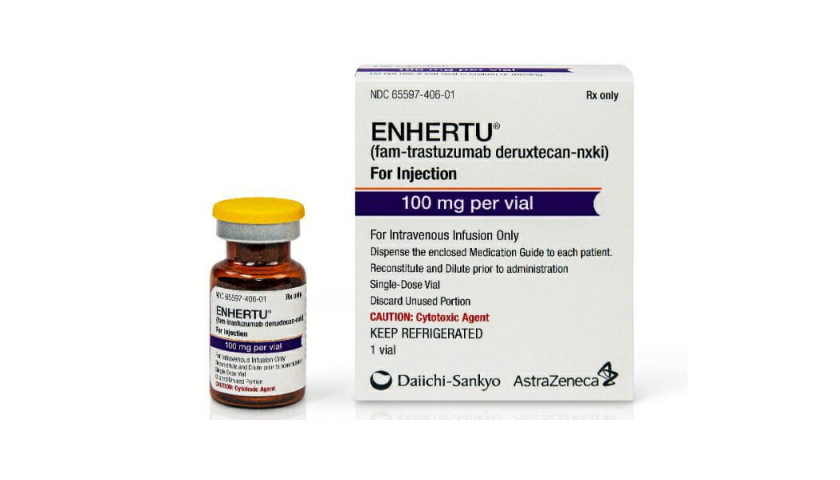Enhertu nabs speedy FDA review for earlier use in breast cancer

Hard on the heels of impressive new data for Enhertu as a second-line therapy for breast cancer, AstraZeneca and Daiichi Sankyo have claimed FDA breakthrough status for the drug that should shorten its review time.
The new designation for Enhertu (trastuzumab deruxtecan) is based on the results of the DESTINY-Breast03 trial, which showed that the drug outperformed Roche's rival therapy Kadcyla (trastuzumab emtansine) in HER2-positive breast cancer patients.
Enhertu is already approved as a third-line therapy for HER2-positive breast cancer, but moving the drug up the treatment pathway could make it an option for a larger group of patients and accelerate sales growth.
Despite initial treatment with Roche's HER2-targeting antibody Herceptin (trastuzumab) and chemotherapy, patients with this type of breast cancer will often experience disease progression, according to AZ.
More effective options are needed to further delay progression and extend survival, said the drugmaker.
In DESTINY-Breast03, Enhertu reduced the risk of disease progression or death compared to Kadcyla by 72% in patients who had previously been treated with Herceptin and taxane chemotherapy, and also achieved a three-fold improvement in progression-free survival.
"This is an important step in bringing Enhertu as a potential new option in earlier lines of treatment for HER2-positive metastatic breast cancer, given the urgent need to improve outcomes," commented Susan Galbraith, head of oncology R&D at AZ.
The head-to-head result involving two HER2-targeting antibody-drug conjugates (ADCs) – which combine trastuzumab with a chemotherapy payload – have convinced AZ and Daiichi Sankyo that Enhertu can become a new standard in breast cancer treatment and displace Kadcyla, which is a $1 billion product.
They needed a stellar results with the drug however as Enhertu has been linked to an uncommon but potentially dangerous side effect – interstitial lung disease (ILD) – which may be linked to the conjugation technology used in the drug and features as a black box warning on its label.
That risk is said to be behind the somewhat slow commercial take-up of Enhertu, with AZ reporting that sales reached $89 million in the first half of this year from use in third-line HER2-positive breast and gastric cancers.
AZ paid a hefty $1.4 billion upfront to license rights to Enhertu in a deal that could be worth up to $6.9 billion to Daiichi Sankyo if all the ADC's development and sales objectives are achieved.













